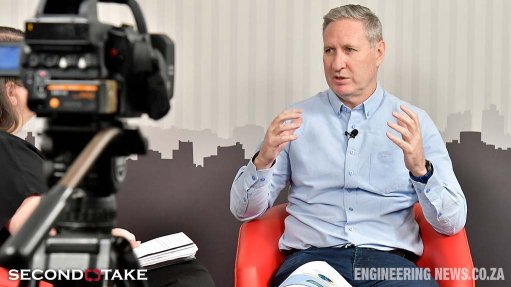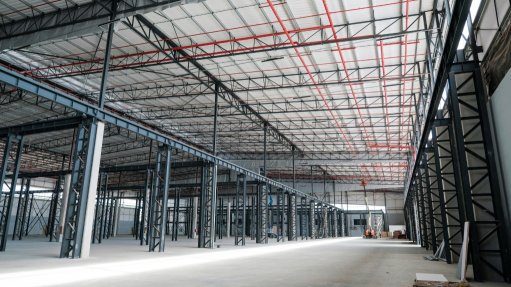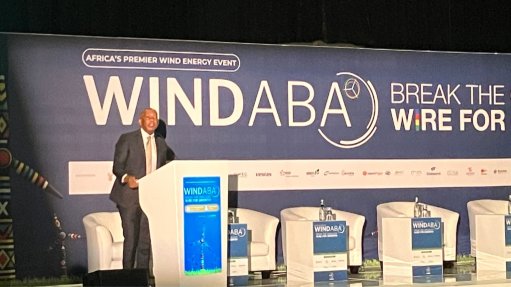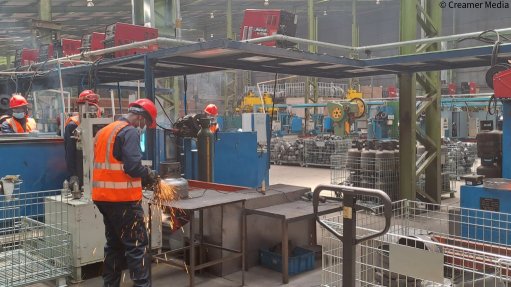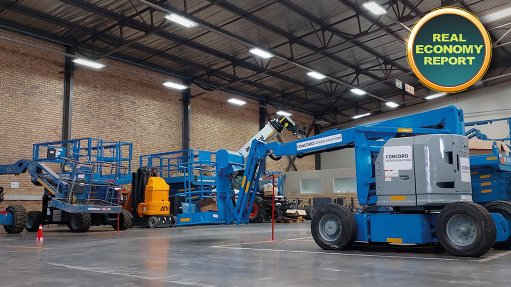The 2023 SAPICS conference unpacks supply chain's critical role in global ESG imperative with a focus on fruit distribution and health supply chains
This article has been supplied.
Circular and sustainable supply chains must be on the agenda of all organisations aiming to future-proof their businesses, according to SAPICS (the Professional Body for Supply Chain Management). This challenge, which is a critical part of the global environmental, social and governance (ESG) imperative, is one of the important topics that will be in the spotlight at the upcoming 2023 SAPICS Conference, Africa's leading event for the supply chain profession.
Hundreds of supply chain practitioners from around the world will gather in Cape Town from 11 to 14 June 2023 for this annual event, and experts will examine diverse issues ranging from carbon mapping of international fruit distribution to global health supply chains' impact on climate change.
Emissions impact of fresh fruit distribution
The emissions impact of distributing goods such as fresh fruit is increasingly attracting attention due to the heightened awareness of greenhouse gas (GHG) emissions. However, despite the environmental impact of transporting, handling and storing goods, assessing the carbon emissions of these activities is largely an underdeveloped field, says Dr Martin du Plessis, a Postdoctoral Research Fellow at Stellenbosch University under guidance of Prof Joubert van Eeden (Department of Industrial Engineering) and Prof Leila Goedhals-Gerber (Department of Logistics).
He contends that this is predominantly the result of a lack of practical industry guidance. The distribution of fresh fruit exported from South Africa is one such process that requires a standardised and accurate method to determine GHG emissions.
Dr Du Plessis is one of the compelling presenters on the programme at the 45th annual SAPICS Conference. Together with co-presenter, Prof Joubert van Eeden, he will introduce conference delegates to an important carbon mapping framework and associated emission intensity factors that were developed for the South African fruit export sector to determine logistical emissions. "This framework and emission intensity factors have been developed to calculate logistical emissions. The framework serves as a comprehensive and useful standard for all logistical activities," he expands.
Du Plessis notes that the distribution of fresh fruit, like all other goods, is a carbon-intensive process, and logistical decisions significantly impact the carbon footprint of goods. In this presentation, he and Van Eeden will also share research results and explore the potential for collaboration between industry partners.
Climate change and healthcare supply chains
Climate change and healthcare supply chains are inextricably linked. Climate variability and more frequent extreme weather events not only disrupt healthcare supply chains but may also trigger diseases and humanitarian crises. According to JSI health logistics director Edward Wilson, there is no doubt that climate change is accelerating the need to redesign the global health supply chain. "Key improvements, such as developing additional manufacturing and distribution resources from inception to delivery, and in collaboration with government and business leaders, can ease disruption to life-saving health product and medicine delivery when it is needed most."
Wilson will examine these issues as well as how global health supply chains are contributing to climate change at the 2023 SAPICS Conference. "Overall, we know that healthcare is responsible for 4 to 4.5% of global net emissions. The supply chain, from production to consumption to final disposal, accounts for 71% of them. We can and must harness our experience and collective desire to stabilise the climate. We have the foundation for action today but must accelerate efforts to achieve greater resilience and reduce climate damage," he stresses.
This year's SAPICS Conference features an exciting collaboration between SAPICS and the South African Association of Freight Forwarders (SAAFF), which will co-host the event. The programme will, for the first time, include a track spotlighting global health supply chain management as well as an all new Warehousing Summit.
Article Enquiry
Email Article
Save Article
To advertise email advertising@creamermedia.co.za or click here
Comments
Press Office
Announcements
What's On
Subscribe to improve your user experience...
Option 1 (equivalent of R125 a month):
Receive a weekly copy of Creamer Media's Engineering News & Mining Weekly magazine
(print copy for those in South Africa and e-magazine for those outside of South Africa)
Receive daily email newsletters
Access to full search results
Access archive of magazine back copies
Access to Projects in Progress
Access to ONE Research Report of your choice in PDF format
Option 2 (equivalent of R375 a month):
All benefits from Option 1
PLUS
Access to Creamer Media's Research Channel Africa for ALL Research Reports, in PDF format, on various industrial and mining sectors
including Electricity; Water; Energy Transition; Hydrogen; Roads, Rail and Ports; Coal; Gold; Platinum; Battery Metals; etc.
Already a subscriber?
Forgotten your password?
Receive weekly copy of Creamer Media's Engineering News & Mining Weekly magazine (print copy for those in South Africa and e-magazine for those outside of South Africa)
➕
Recieve daily email newsletters
➕
Access to full search results
➕
Access archive of magazine back copies
➕
Access to Projects in Progress
➕
Access to ONE Research Report of your choice in PDF format
RESEARCH CHANNEL AFRICA
R4500 (equivalent of R375 a month)
SUBSCRIBEAll benefits from Option 1
➕
Access to Creamer Media's Research Channel Africa for ALL Research Reports on various industrial and mining sectors, in PDF format, including on:
Electricity
➕
Water
➕
Energy Transition
➕
Hydrogen
➕
Roads, Rail and Ports
➕
Coal
➕
Gold
➕
Platinum
➕
Battery Metals
➕
etc.
Receive all benefits from Option 1 or Option 2 delivered to numerous people at your company
➕
Multiple User names and Passwords for simultaneous log-ins
➕
Intranet integration access to all in your organisation















